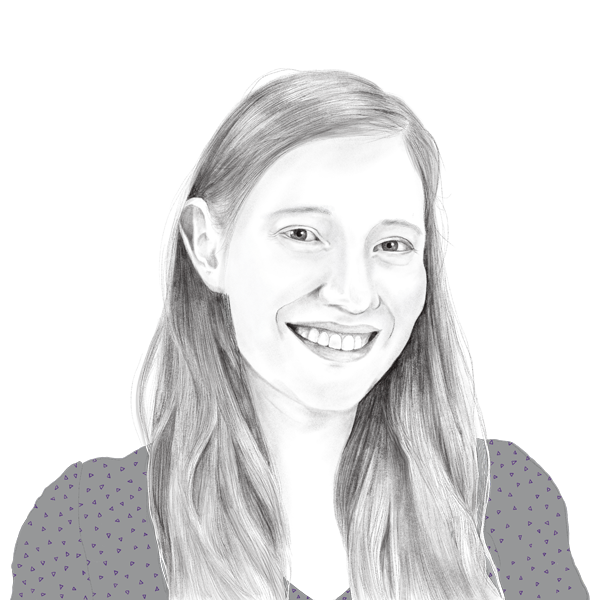TRS01 (eye drop formulation of dazdotuftide) demonstrates clear anti-inflammatory activity in noninfectious anterior uveitis with no evidence of significant adverse effects.
A post hoc analysis looking at the drug total impact compared to steroids suggests a benefit-risk advantage of TRS01 in noninfectious uveitis and specifically in uveitic glaucoma.
Secondary endpoints measuring key inflammation related parameters were observed to be comparable to steroids although primary endpoint of ACC=0 at week 4 compared to steroids active control arm was not met.
The results of TRS4VISION trial confirm the potential of TRS01 to treat ocular inflammation and further validate the novel mechanism of action of dazdotuftide.
Plans underway to meet with regulatory agencies to determine the optimal path forward for TRS01.
TEL-AVIV, Israel, Aug. 23, 2023 /PRNewswire/ — Tarsier Pharma, an advanced clinical stage biotechnology company developing dazdotuftide (formerly known as TRS), a first-in-class New Chemical Entity for patients with immune-mediated diseases, today announced results from the noninfectious anterior uveitis TRS4VISION Trial. While the primary endpoint was not met, a post hoc analysis of the data demonstrates the much-anticipated clinical profile of a blend of safety and actively resolving inflammation that is promising in the treatment of noninfectious uveitis and specifically in uveitic glaucoma.
TRS4Vision was a randomized, multi-center, active-controlled, double-masked study to evaluate the safety and efficacy of TRS01 eye drops in the treatment of subjects with active noninfectious anterior uveitis including subjects with uveitic glaucoma. The study enrolled a total of 142 patients in 30 clinical sites across the USA and Europe, stratified for baseline inflammation (ACC grade). Patients were randomized 2:1 to receive TRS01 – 1% ophthalmic solution or a steroid active-control eye drop for four weeks, followed by a two-week follow up period. The primary endpoint was the proportion of patients reaching total resolution of inflammation (zero cells) in week four. The study included multiple pre-specified secondary endpoints to assess the safety and efficacy including intraocular pressure (IOP), ocular pain, flare, and other examinations.
The change from baseline for ocular pain and flare, two key indicators of active uveitis inflammation, was found to be comparable between TRS01 and the steroid active control arm.
According to post hoc analysis and based on the following findings, the benefit-risk profile of TRS01 was judged to be positive regarding the total clinical impact on patients’ lives:
Sustained resolution of inflammation – Although the steroid active control was effective at the end of the treatment period, the inflammation resolution was transient, with a 2-fold higher rate of rebound (relapse of inflammation within 2 weeks) compared to the TRS01 treatment arm and up to 6-fold higher rate of rebound compared to TRS01 treatment arm in a pre-specified subgroup.
Intra Ocular Pressure – 2.6-fold higher rate in the steroid active control arm presented a clinically meaningful IOP elevation after only four weeks of treatment compared to the TRS01 arm. This steroid induced IOP elevation is a known side effect of steroids and the key reason why uveitic glaucoma patients should not be treated with steroids.
Long term risk of glaucoma – significantly higher proportion of patients that had a total resolution of inflammation with TRS01 compared to the steroid active control arm, maintained an intraocular pressure lower than 16 mmHg. According to the MUST trial an IOP measure lower than or equal to 16mmHg substantially reduces the risk of developing glaucoma which is critical for these patients.
Overall safety – based on the totality of the data thus far from the clinical investigations of TRS01 it was found that TRS01-1% has a favorable safety and tolerability profile in noninfectious uveitis.
Overall, the TRS4Vision data demonstrated the potential of TRS01 ophthalmic solution to deliver a risk-benefit product profile of sustained resolution of inflammation and stable IOP.
Dr. Ron Neumann, Tarsier Pharma CMO holding 30 years of experience in treating hundreds Ocular Inflammatory disorders: “Treating patients with uveitis and uveitic glaucoma for more than 3 decades, I’m excited with the results seen in this TRS4Vision Phase 3 trial. While the study’s primary endpoint might not have yielded the anticipated efficacy outcomes when compared to steroids, the trial has imparted invaluable insights that underscore the TRS01 potential in real-world uveitic glaucoma treatment. These insights have unveiled three pivotal lessons that are set to reshape the landscape of uveitic glaucoma management:
Lesson 1. Based on the response level to TRS01 and overall favorable safety profile we can conclude that the drug is active in resolving inflammation
Lesson 2. Noteworthy stable Intraocular Pressure (IOP) levels, even among patients with uveitic glaucoma and those responsive to steroids, suggests TRS01 emerging as a front-runner for the safest treatment option in uveitic glaucoma to date.
Lesson 3: TRS01 anti-inflammatory activity, coupled with its non-elevated risk of glaucoma, and sustained efficacy post-discontinuation, promises to revolutionize treatment paradigms. This transformation is expected to elevate the overall clinical impact in the treatment of uveitic glaucoma, promising hope to many individuals against vision loss due to inflammation or its associated glaucoma.”
Commenting on these results, Daphne Haim-Langford, Ph.D., President and CEO of Tarsier, said “We are excited about these results. We are grateful to the many patients, caregivers, and physicians who have enabled the development of TRS01 and are encouraged by the opportunity TRS01 may have in meaningfully improving quality of lives of patients in need. Based on the TRS4Vision trial results, we plan to engage with regulators to determine the optimal path forward to bring TRS01 to patients as expeditiously as possible.”
A principal investigator for the trial, Professor Alan Palestine, M.D., Chief, Uveitis and Ocular Immunology Section at the University of Colorado and a Key Opinion Leader in ocular inflammation, has described this study outcome as “A substantial step forward in topical therapy for patients with uveitis. Upon evaluating its overall impact on uveitis patients, it has demonstrated noteworthy benefits, including a reduction in the risk of elevated eye pressure and glaucoma while actively addressing inflammation. The development of a non-steroid drug for uveitis has been eagerly anticipated. From an objective standpoint, the drug’s benefit-risk profile appears positive, offering promising prospects as a future treatment option for individuals suffering from noninfectious anterior uveitis, including those diagnosed with uveitic glaucoma.”
Topline data from the TRS4Vision trial will be presented in an oral presentation at the IOIS 2023 Congress.
About Tarsier Pharma
Tarsier Pharma is a clinical stage biopharmaceutical company, focused on the discovery, development, and commercialization of first-in-class pharmaceutical therapies to treat immune-mediated blinding diseases in the front and back of the eye.
About TRS01
Dazdotuftide (formerly known as TRS) is a first-in-class drug with a new and unique mechanism of action, for the treatment of ocular blinding diseases of back- and front- of the eye. Dazdotuftide is a bio-inspired novel proprietary technology platform, based on a New Chemical Entity (NCE) with a disruptive mechanism of action. Dazdotuftide was found to modulate macrophages from inflammatory macrophages (M1) to IL-10 secreting ant-inflammatory macrophages (M2).
Tarsier is developing dazdotuftide as an eye drop formulation (TRS01) for front-of-the-eye indications and as a slow-release biodegradable intravitreal injection (TRS02) targeting back-of-the-eye blinding indications with an underlying inflammatory pathology, such as Diabetic Macular Edema, Non-Proliferative Diabetic Retinopathy, and others. Due to dazdotuftide unique mechanism of action of immunomodulation, we believe dazdotuftide has the potential to treat these debilitating diseases with a sustained effect and minimal risk of IOP elevation.
About Uveitic Glaucoma
Noninfectious uveitis is a chronic autoimmune disease of the eye and the 3rd leading cause of blindness. Despite available treatment options, 67% of patients suffering from noninfectious uveitis reaching visual impairment and 22% are meeting a legal blindness criterion. The current treatment for active noninfectious anterior uveitis is topical steroids. Since their introduction to the eye 70 years ago, topical steroids have been used as first line treatment due to their potency in resolving inflammation. While potent in resolving inflammation, topical steroids carry a high risk of intraocular pressure (IOP) elevation mediated by steroids’ receptors, and often if treatment is ceased without long tapering period, a recurrent rebound inflammation occurs. In some patients’ IOP elevation leads to glaucoma (i.e uveitic glaucoma). Uveitic glaucoma is a challenging disease to treat, with a unique pathophysiology, disease course, prognosis, and a significantly more difficult clinical course to manage than anterior uveitis without glaucoma. The overall prevalence of glaucoma in eyes with uveitis (i.e uveitic glaucoma) varies from 10 to 20 percent but is much more common in chronic uveitis and can be as high as 46 percent.
Contact:
Investor Relations Tarsier Pharma
[email protected]
SOURCE Tarsier Pharma

























